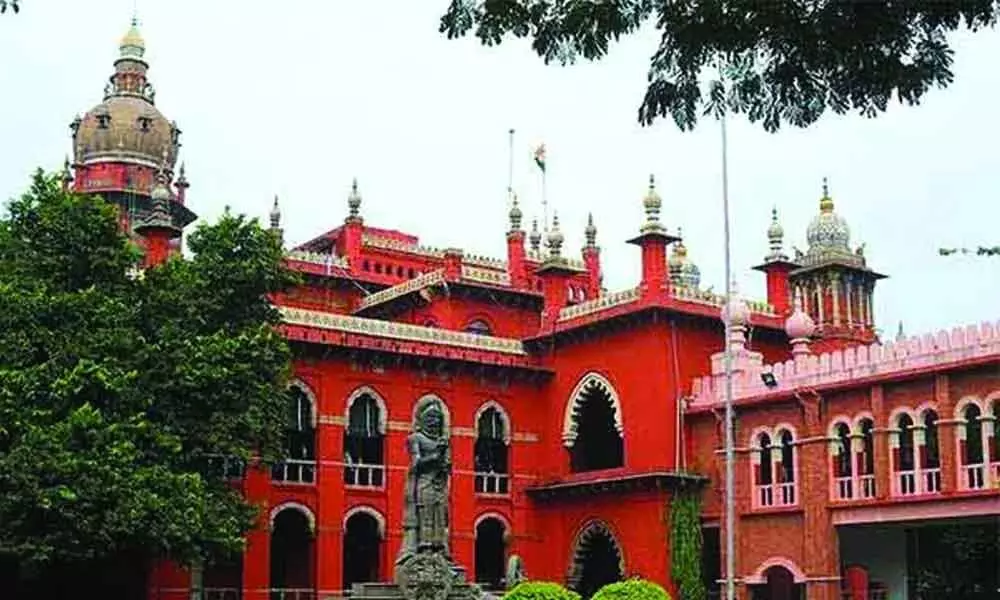Live
- Gurumurthy takes charge as chief of Gowda Corpn
- Study warns: Ultra-processed foods may accelerate biological age
- CM pledges more political opportunities to Madigas
- Year-Ender 2024 Guide: Home remedies to relieve Period Pain.
- All India crafts mela begins today
- TTD gears up for Vaikunta Ekadasi fete
- Vizag attracts tourists as much as Kashmir
- Express Yourself
- Rajadhiraaj: Love. Life. Leela
- Students immerse in nature in Chilkur forest
Just In
Madras High Court orders job on compassionate ground to man after 3 decades


Madras High Court
Holding it would like to render justice than judgement, the Madras High Court has directed the Tamil Nadu government to provide, on compassionate grounds, a job to a man, whose father had died three decades ago, when he was just four years old.
Chennai: Holding it would like to render justice than judgement, the Madras High Court has directed the Tamil Nadu government to provide, on compassionate grounds, a job to a man, whose father had died three decades ago, when he was just four years old.
The enormous delay on the part of the lower courts in deciding the eligibility issue, should not stand in the way of the son getting the job, a division bench of Justices S Vaidyanathan and A A Nakkiran said. The judges were passing orders on a writ appeal from Irosa, the wife of the deceased government employee and her son P Prabakaran, recently.
The duo had challenged an order dated August 5, 2020 of a single judge rejecting their plea on the ground of enormous delay of three decades.
The judges noted that in the case on hand, the first appellant--Irosa, claims to be the first wife of the deceased employee and the second appellant his son. The employee died while in service in March 1988 and the first appellant made an application seeking appointment on compassionate ground in February,1990.
At that point of time, another woman, claiming to be the wife of the deceased, made a counter-claim for compassionate appointment. This made the government take a neutral stand that, unless otherwise, the relationship between the first appellant and the deceased employee was established by the competent court of law, the request for compassionate appointment cannot be considered.
Accordingly, Irosa approached the competent civil court to get a declaration that she is the legally wedded wife of the deceased employee. Though the civil court gave an order in her favour, the government did not relent. Hence, the writ petition and now the appeal.
"The Court renders judgement, which is completely different from rendering justice. That is, in life, expectation is different from reality. For example, in most of the criminal cases, Truth never triumphs-, as benefit of doubt goes in favour of the accused, even though the lawyers would know that the accused is the culprit, but, in the absence of chain link, the accused will come out from the charges. In all cases, we would like to render justice rather than rendering judgement," the judges observed. Though there was enormous delay of more than three decades on the part of the appellants in approaching this Court, neither they nor the Government are at fault and that the delay is only on the part of the civil Court in disposing of the matter. "Hence, this Court is of the considered view that the second appellant (son Prabakaran) shall not be deprived of compassionate appointment, if he is otherwise eligible to be considered," the judges said.

© 2024 Hyderabad Media House Limited/The Hans India. All rights reserved. Powered by hocalwire.com






